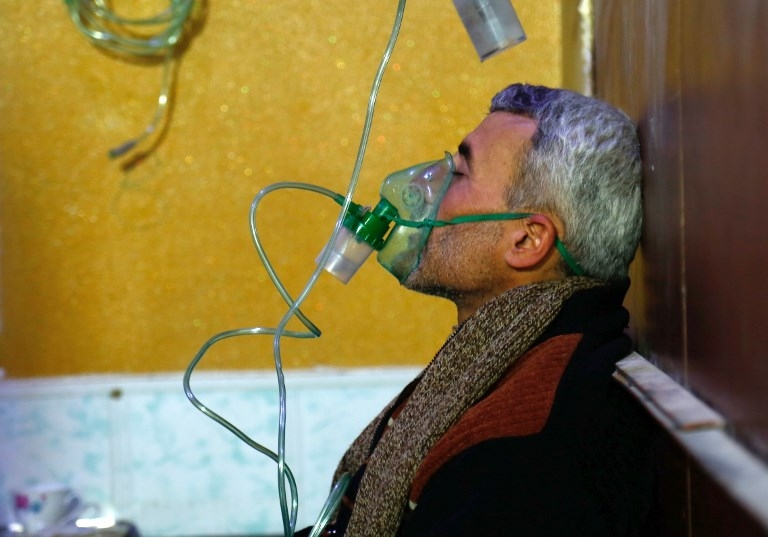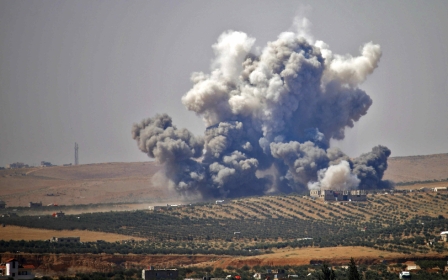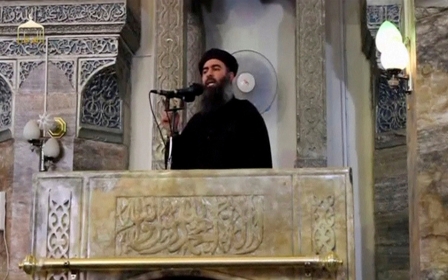Chlorine used in Syria's Douma, but no evidence of nerve agents, OPCW finds

Preliminary analysis by the world's chemical weapons watchdog found chlorine was used in an attack in Douma, Syria, in April that killed dozens of civilians and prompted air strikes by Britain, France and the United States, it said on Friday.
The Organization for the Prohibition of Chemical Weapons (OPCW) sent a fact-finding mission to Douma in mid-April, roughly a week after the 7 April attack in the enclave near Damascus.
"Various chlorinated organic chemicals were found in samples" from two locations, the report said.
It added that it had found no evidence of nerve agents.
"The results show that no organophosphorous nerve agents or their degradation products were detected either in the environmental samples or in the plasma samples from the alleged casualties," the OPCW said.
The OPCW has documented systematic use of banned munitions in Syria's civil war, including nerve agent sarin and sulphur mustard gas. It has not assigned blame for the attacks.
In Douma, OPCW inspectors visited two sites where they interviewed witnesses and took samples, which were split at their laboratory in the Netherlands and forwarded to affiliated national labs for testing.
Two samples recovered from gas cylinders at the scene tested positive for chlorine, the report said.
Washington and other Western governments blamed Syrian government forces for the attack in Douma.
The Syrian government denies using chemical weapons during the country's long civil war, but a previous joint inquiry of the United Nations and the OPCW found that the Syrian government used the nerve agent sarin in an April 2017 attack, and also used chlorine several times.
It also blamed Islamic State group militants for mustard gas use.
Late last year, Russia wielded its veto power at the UN Security Council to effectively kill a joint UN-OPCW panel aimed at identifying those behind suspected chemical attacks in the war-torn country.
New MEE newsletter: Jerusalem Dispatch
Sign up to get the latest insights and analysis on Israel-Palestine, alongside Turkey Unpacked and other MEE newsletters
Middle East Eye delivers independent and unrivalled coverage and analysis of the Middle East, North Africa and beyond. To learn more about republishing this content and the associated fees, please fill out this form. More about MEE can be found here.




